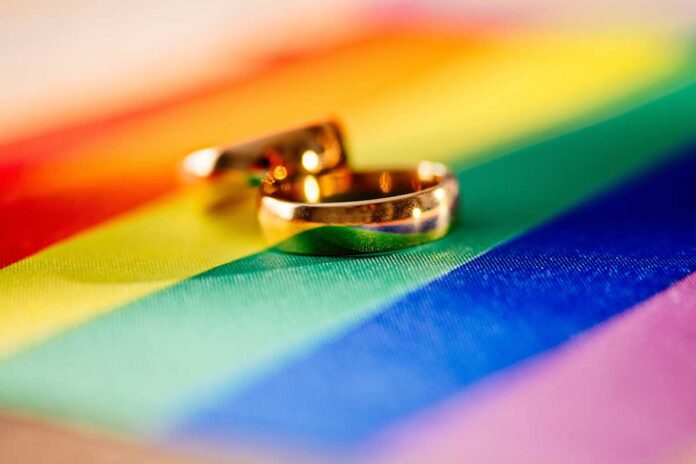Our community can sometimes be a bit of a paradox. Many of us are taught from an early age that we need to be self-reliant because we’re different from other people and because we need to protect ourselves. But then when we do come out and enter into the community, we see that there is a whole diverse community full of like-minded people to rely on. Sometimes that pressure to be a part of the community can be very strong, and it can lead to people feeling isolated or left out in many ways. The pressure also runs counterintuitive to what we learned early on and what many of us still believe as a result.
The struggle between being self-reliant or relying on others is consistently at play for many LGBTQ people, either in their personal relationships, friendships, work relationships, or hobbies.
Before 2015, when the Supreme Court made same-sex marriage the law of the land (a law, by the way, which could be overturned in the future if you don’t keep voting), many of us in the community thought we didn’t need marriage. We’d survived for long enough without it. Of course we had seen or heard the stories of long term spouses who were completely cut off from their partners’ estates after their partner passed away, and those are always tragic. But the fight for equality had a lot of other good things going for it, and marriage just didn’t seem as important compared to hate crimes laws or employment discrimination laws. After all, what does marriage matter when people were and are getting attacked or fired from their jobs?
But, actually, same-sex marriage directly relates to both of those things, and even more facets of LGBTQ acceptance. It’s not hard to see why. If same-sex spouses walk down the street holding hands, it normalizes that behavior to non-LGBTQ people. If a woman is wearing a wedding ring and someone asks her about her husband, but she then starts to talk about her wife, that helps challenge people’s preconceived notions. If a person brings their same-sex spouse to a work function, that helps to normalize their relationship to their employer. That added visibility is important in the continued fight for workplace equality. It helps to show, as LGBTQ people have been trying to do for decades, that we are capable of loving and committed relationships like any other heterosexual married couple.
To summarize: marriage allows our community to be taken more seriously by non-LGBTQ people. Of course, LGBTQ people should be taken seriously regardless of their relationship status. But for some non-LGBTQ people, it is important for them to see that LGBTQ people can, and do, get married. As much as we push the importance of empathy to all, many still trust only that which they see with their own eyes. That’s especially true in our polarized society.
More importantly than the political impact, though, what about the personal impact of same-sex marriage? What does marriage do, on a purely personal level, for two LGBTQ people?
The response is simple, and it’s the same as heterosexual marriages: it does whatever the two people want it to do. It could help a couple feel more unified; it could help them via the various legal and financial impacts that marriage has; it could help them in myriad ways that being legally and spiritually connected does.
Finally, there is the effect of marriage on an individual level. What does marriage do for an LGBTQ person?
To this, the answers are endless. But a lot of them center around one main point: understanding who you are. By purely existing, same-sex marriage laws and the act of marriage itself allows LGBTQ people to explore a side of themselves that was previously cut off to them, relegated only to dreams or diary entries. Questions like “What do I want out of my relationships with people?” and, yes, “Do I want to get married someday?” have actual real world consequences now. It adds another layer (and an important one) of self-reflection that allows people to feel more a part of society, more included. It allows people from a young age to experience the literally endless movies, tv shows, songs about marriage and identify with them on a human level. It allows people to be more free to be themselves.
There’s one more question about same-sex marriage that many of us grappled with, especially those of us who ever felt ashamed of who we are: “Do I even deserve to be loved like that?”
And, once again, the answer is, obviously, a celebratory yes.
